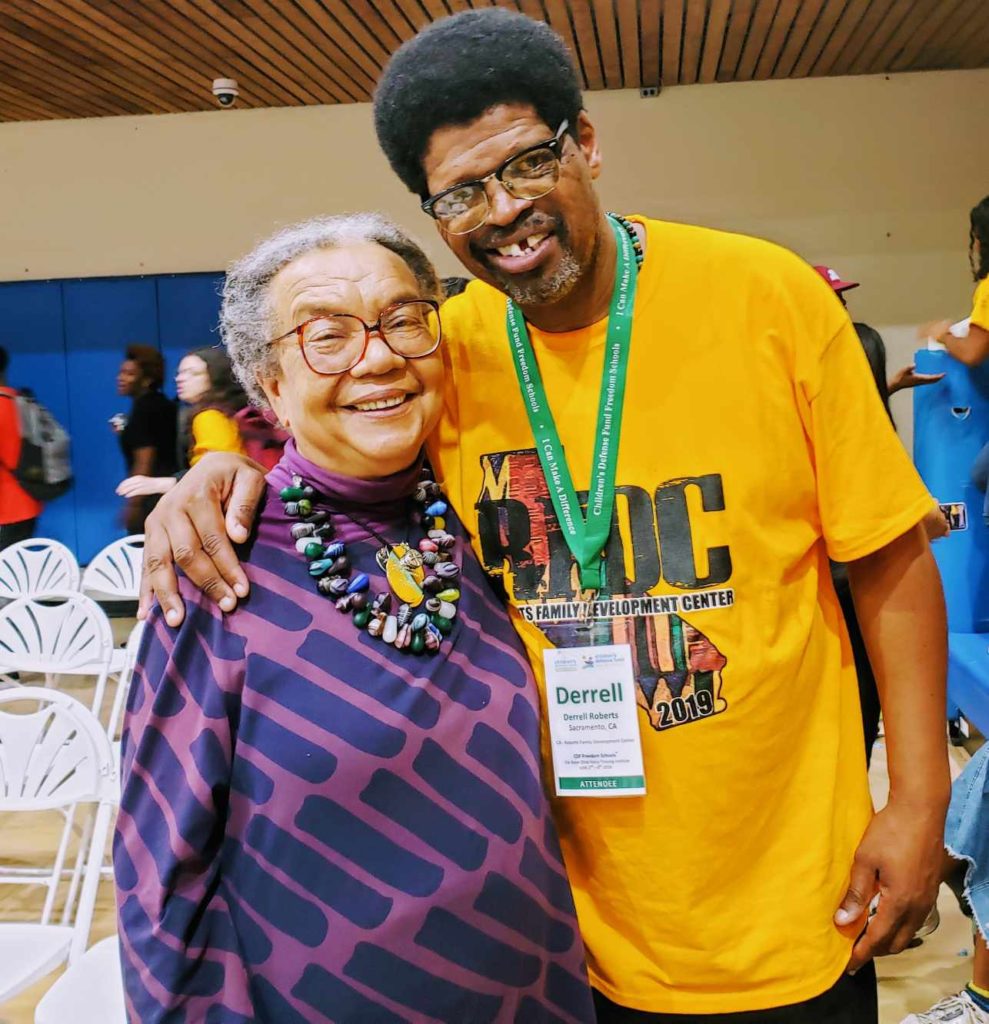Impact of slavery lingers 150 years later
By Derrell Roberts
The issue of reparations has taken on a new life recently as it has become a discussion point among the Democratic presidential candidates.
Webster defines reparations as the making of amends for a wrong someone has done by paying money to help those who have been wronged.
I define it as making amends for the 250 years that America kept a large population of people as cattle, as property, or as less than human.
Senate Republican leader Mitch McConnell of Kentucky dismissed this call for reparations. He was followed by Sen. Tim Scott of South Carolina, the only black Republican in the U.S. Senate, who said it’s too complicated to figure out who to compensate.
You should not be surprised. Whites and even blacks and other people of color who are privileged or “advantaged” often have a problem with “leveling the playing field.”
Many who side with this group also mistakenly believe that slavery completely ended in 1865, but forget about the policies and discriminatory practices that allowed the remnants of slavery to exist up until the 1965 Voting Rights Act. Families of former slaves were impacted by slavery until 55 years ago.

It’s also a fact that though all slaves were considered freed in June 1865 and promised 40 acres and a mule, this promise was never realized for most. This promise was only fulfilled for a few hundred “soldier slaves” who fought alongside Union soldiers and happened to live along the coast of South Carolina and Georgia. The land and animals were taken back upon the death of President Abraham Lincoln in that same year. Sadly, the property was returned to the former slave owners.
The 13th Amendment (1865) ended slavery, the 14th Amendment (1868) guaranteed African Americans the rights of American citizenship and the 15th Amendment (1870) guaranteed black men the right to vote.
But the 13th Amendment was replaced by today’s prison system. Descendants of the enslaved make up the largest percentage of prisoners in the country. The 14th Amendment was compromised when Southern states enacted black codes to prevent African Americans from achieving political and economic autonomy. And the 15th Amendment was not made whole until the Voting Rights Act of 1965,
After the Reconstruction era ended, lynching, disenfranchisement and segregationist laws proliferated across the South. There were also sharecropper farmers, separate-and-unequal equal schools, red-lining bank policies, white flight and much more. It was not until after World War II and the 1960s civil rights movement that Jim Crow segregation was outlawed.
If we gave each descendant of slaves $1.5 million, one estimate is that reparations would cost $60 trillion. Whether I agree with that or not is not the point. What I do understand is that 150 years after slavery, there are still remnants of the systems set up to make it difficult for blacks to be successful in this country.
Who is at fault? The Ku Klux Klan and its sympathizers, Lester Maddox types, George Wallace types, Strom Thurmond types, Steve King types, Mitch McConnell types and, unfortunately, Tim Scott types, to name a few.
As the Democratic presidential hopefuls talk about the issue of reparations, I hope this season of campaigning gives us a better understanding why this discussion continues 150 years after it started.





This is nothing but an attempted money grab of tax payer dollars by people who were not affected by slavery and use it as an excuse to steal money from the government. It is a farce and offensive as hell. So what bout the 350,000 union soldiers that fought the south and freed the slaves? Shouldn’t their decedents get money too? What about the black slave owners which there were a pretty decent amount of in the south who owned plantations and owned slaves? Should their families get or give money? And since out of the tens of thousands of slave owners that there were, there were only about 50 republicans that owned slaves with the rest being democrats, shouldn’t the democrats of today pay the majority of the trillion dollars reparations would cost? I wonder how many who read this “newspaper” even knew that blacks owned slaves, that blacks in Africa captured them to begin with, and that a huge majority of whites who owned slaves were democrats? Uninformed and begging for handouts you don’t deserve is a disgrace to those doing it and a literal joke, albeit a bad one.